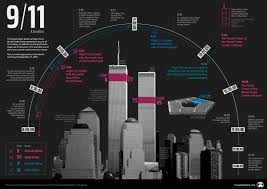What Time Did 9/11 Happen? A Detailed Timeline

The Significance of 9/11
The September 11 attacks in 2001 marked one of the most pivotal moments in modern history, reshaping global politics, security measures, and international relations. Understanding the exact timeline of events on that fateful day helps us grasp the scale and severity of the attacks.
Timeline of Events
On the morning of September 11, 2001, a series of coordinated terrorist attacks were carried out by the extremist group al-Qaeda. The first plane, American Airlines Flight 11, hijacked by five terrorists, struck the North Tower of the World Trade Center in New York City at 8:46 AM. Just 17 minutes later, at 9:03 AM, United Airlines Flight 175, also hijacked, crashed into the South Tower.
At 9:37 AM, a third plane, American Airlines Flight 77, targeted the Pentagon in Arlington, Virginia, marking the third successful strike in a series of planned assaults. The final plane, United Airlines Flight 93, was hijacked with the intent to attack a government target in Washington, D.C. Passengers aboard fought back against the hijackers, and ultimately, the plane crashed in a field in Pennsylvania at 10:03 AM, preventing further destruction.
The Aftermath and Global Response
The destruction of the Twin Towers, which collapsed at 9:59 AM and 10:28 AM respectively, resulted in the loss of nearly 3,000 lives and injured over 6,000 more. In the immediate aftermath, the U.S. launched a comprehensive response including military action in Afghanistan to dismantle al-Qaeda and remove the Taliban regime, which had provided them sanctuary. The events of 9/11 also led to significant changes in how countries around the world approach security and terrorism, with many implementing stricter air travel regulations and intelligence sharing.
Conclusion
The timing of the events of September 11, 2001, not only relates to specific moments but reflects a significant shift in global perspectives on terrorism and security. Understanding when 9/11 happened sheds light on the ongoing ramifications of these attacks, including policy changes and a heightened focus on national security. As we remember the lives lost and the impact on global relations, it’s essential to reflect on how these events continue to influence our world today.
